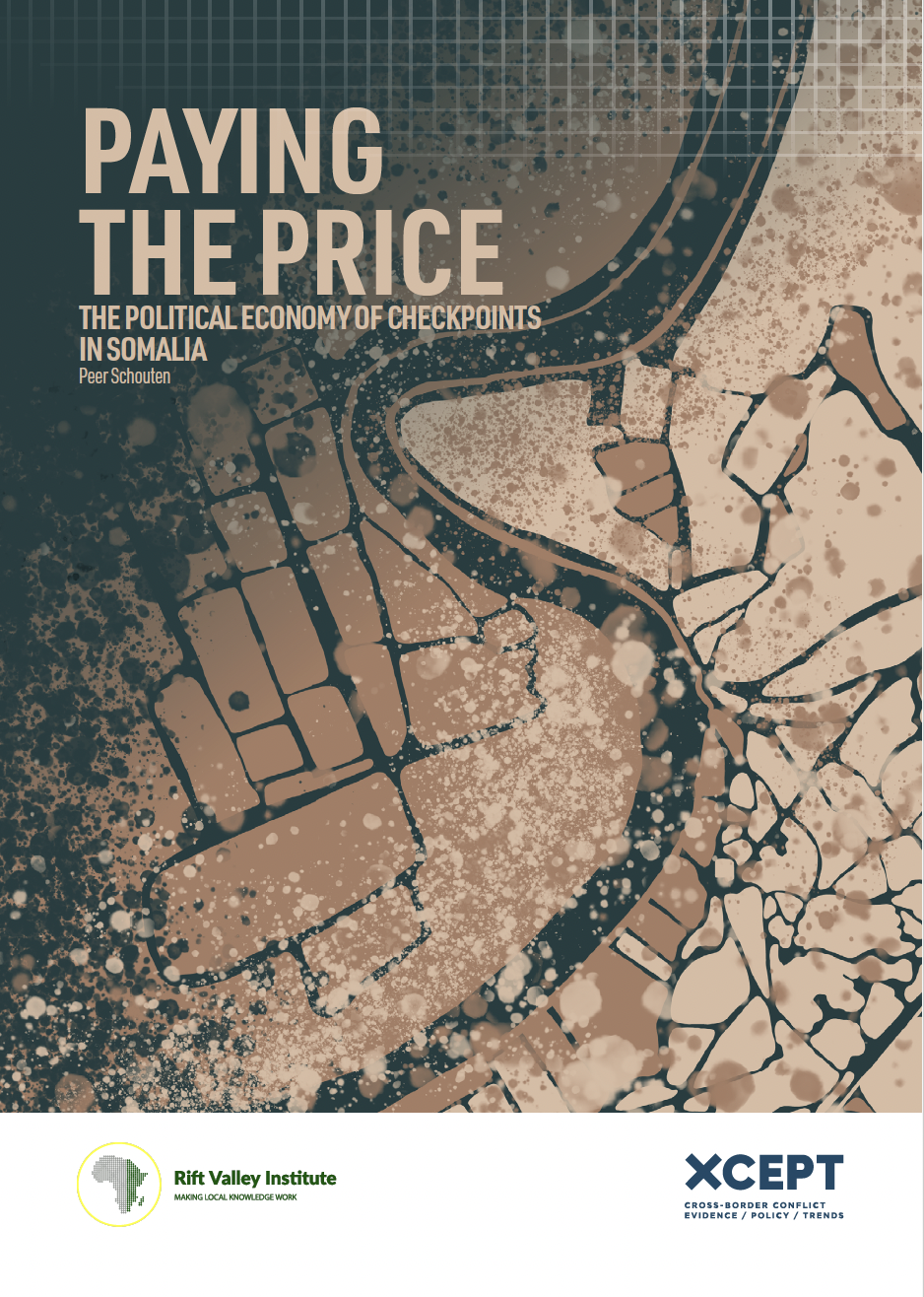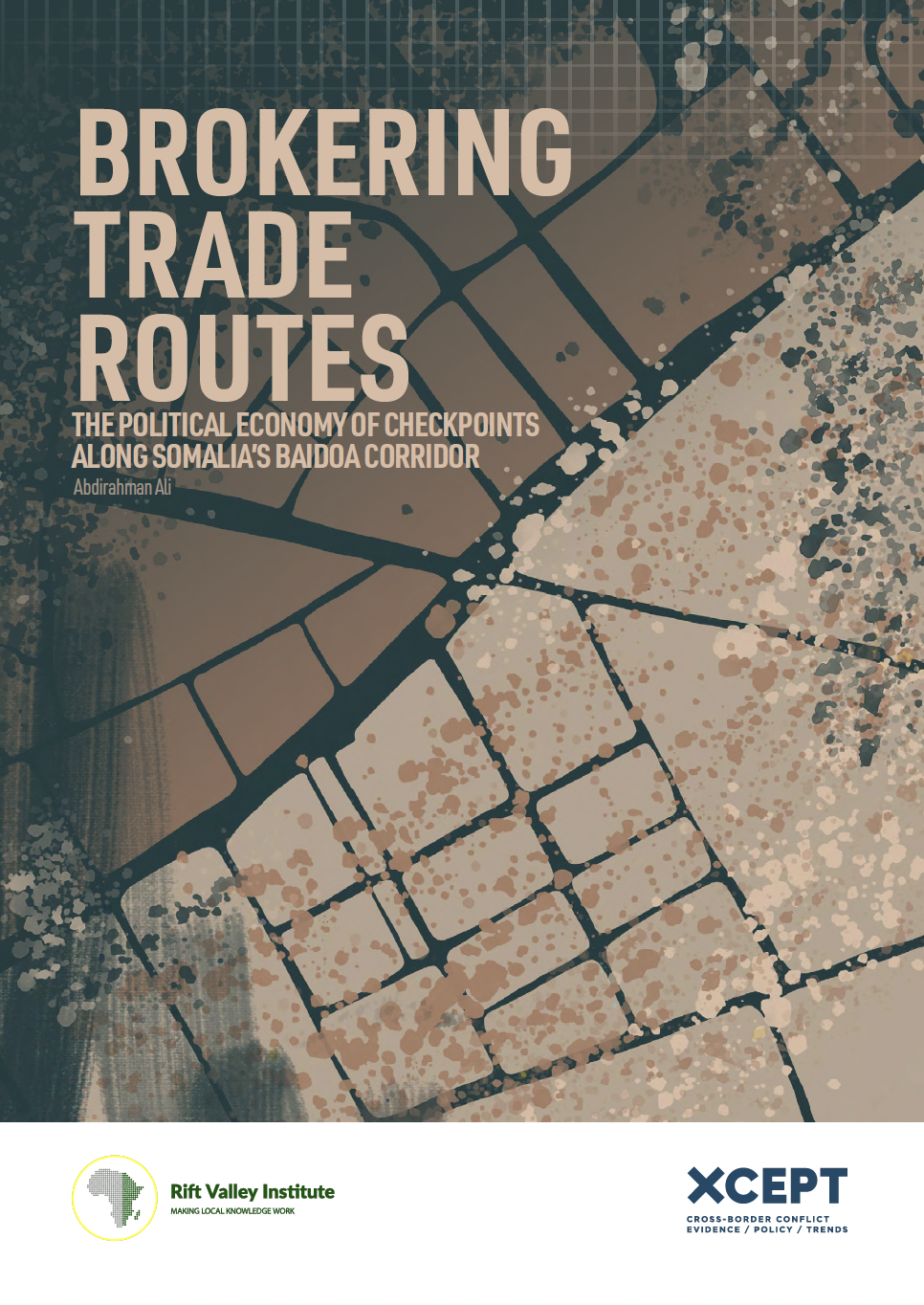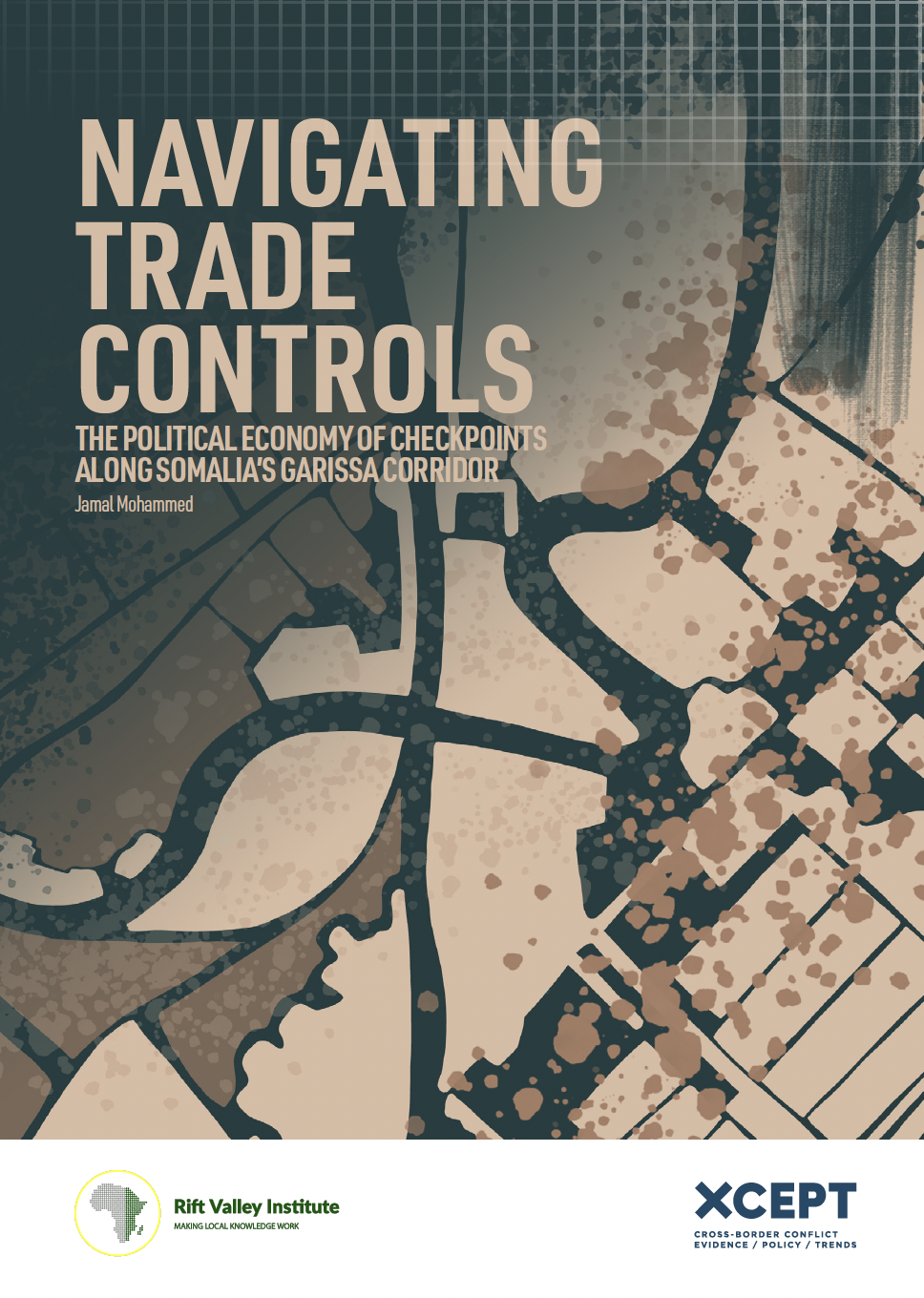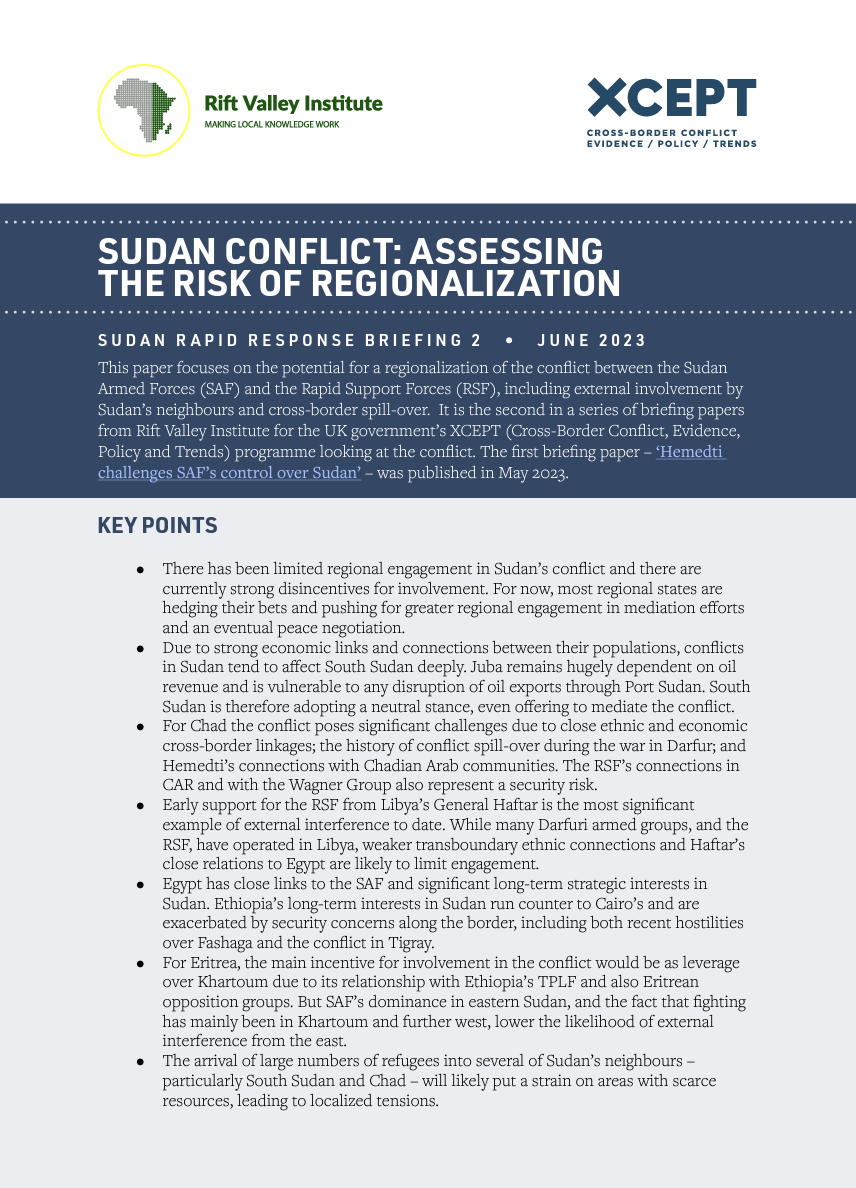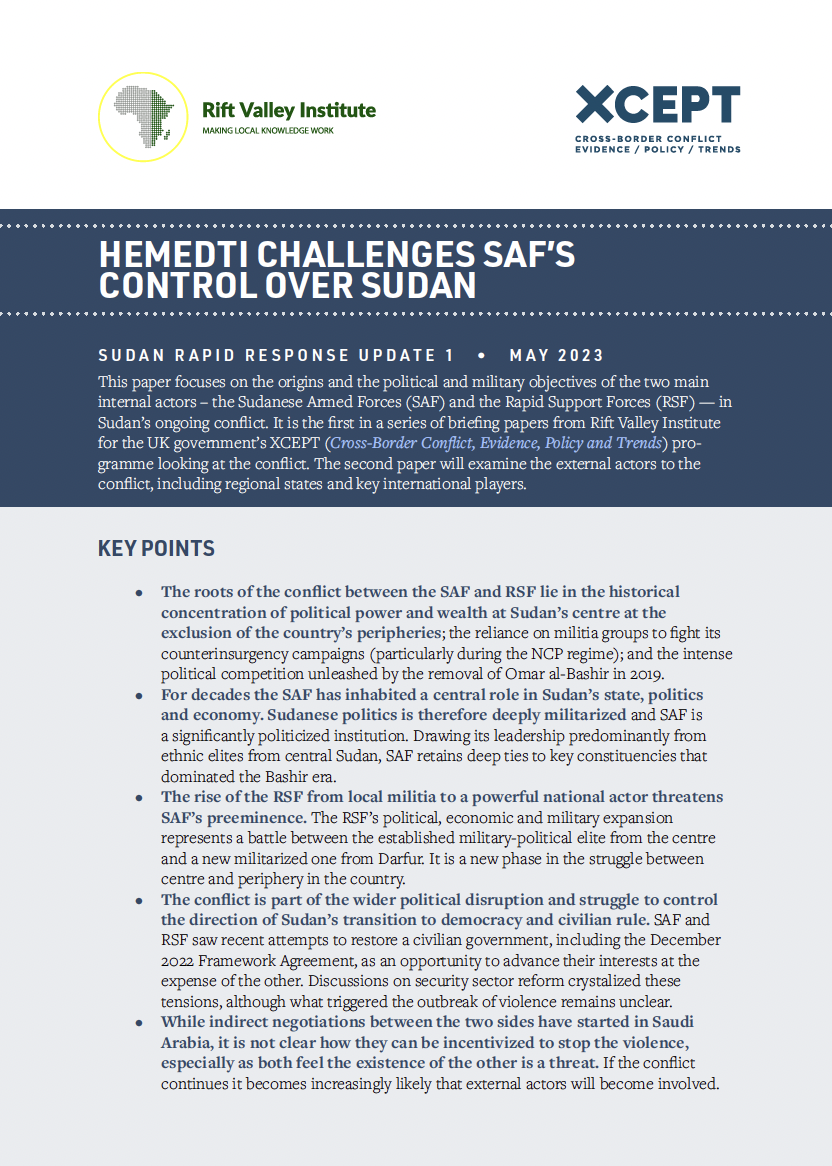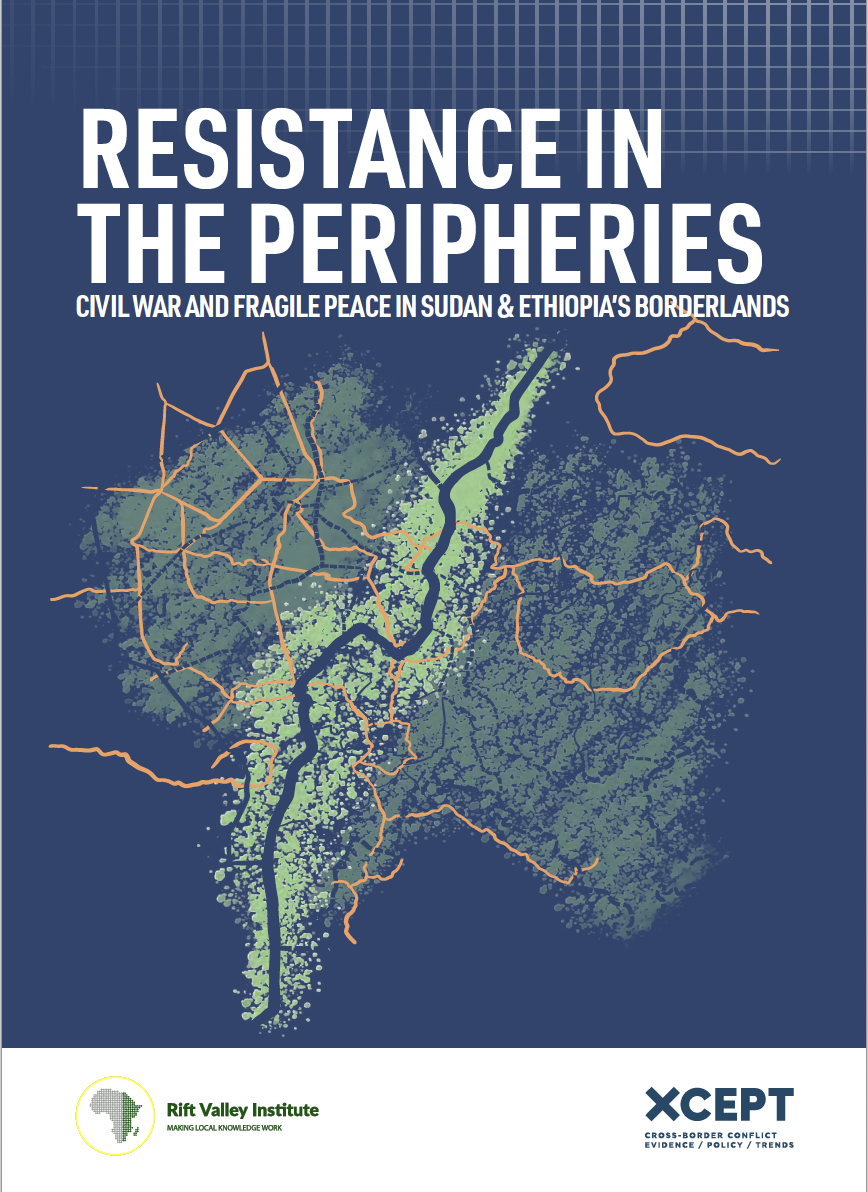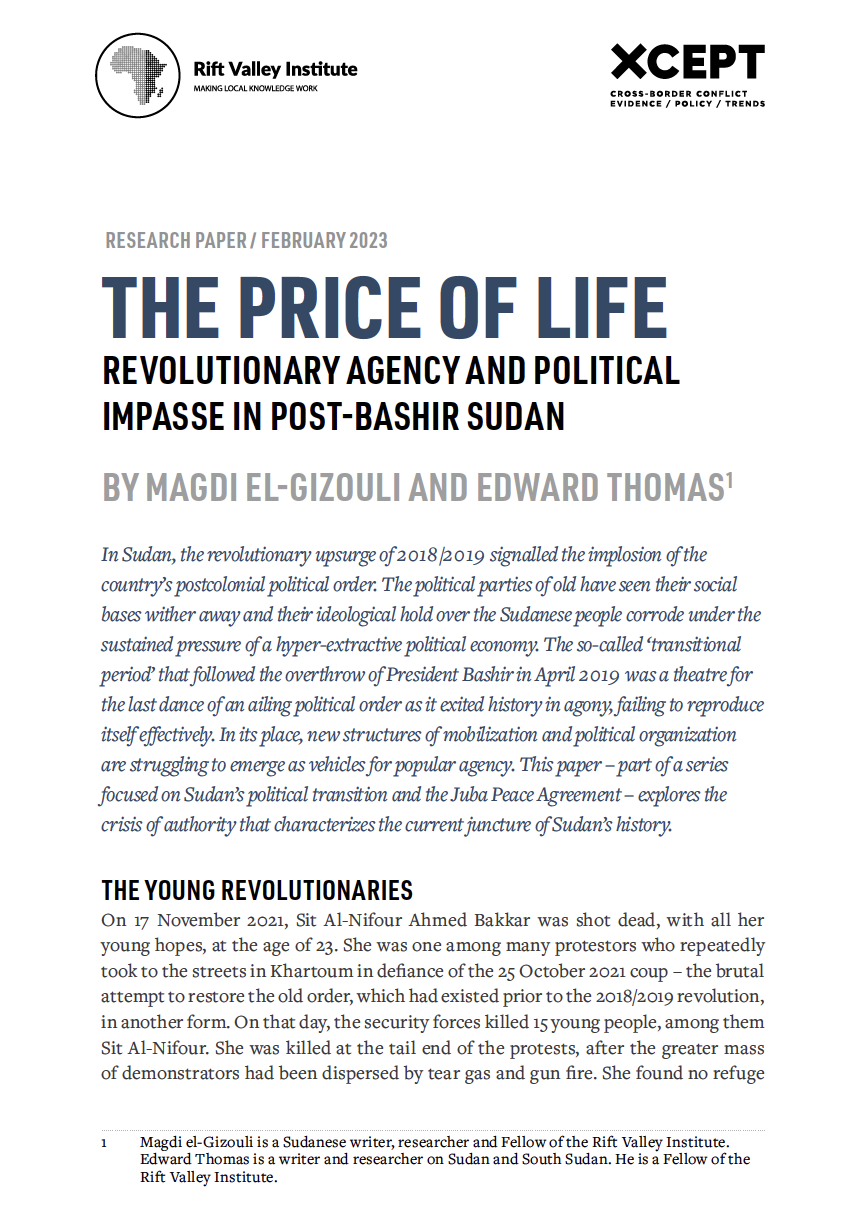SUMMARY This report explores the political economy of checkpoints in Somalia: What drives their formation? What impacts do they have on trade, society and political projects? To explore these factors, new empirical data is presented on the distribution and…
RVI publishes books, research reports, research papers, briefings and meeting reports in a range of formats. Publications cover policy, research, arts, culture and local knowledge in the countries of eastern and central Africa. Research publications—books, reports and papers—are peer-reviewed. Some RVI publications are also available in French and/or Arabic.
The RVI is a signatory of the Budapest Open Access Initiative (2001); all publications are free for download in PDF format under Creative Commons licences. The views expressed in books and reports published by the RVI are those of the authors, not the Institute.
SEARCH
PUBLICATION TYPE
LANGUAGE
REGION
COUNTRY
THE POLITICAL ECONOMY OF CHECKPOINTS ALONG THE BAIDOA CORRIDOR SUMMARY • The Baidoa corridor is a transport and trade route that connects Somalia’s coastal capital, Mogadishu, to Kenya via the border towns of Bula Hawa and Dollow, respectively. As…
THE POLITICAL ECONOMY OF CHECKPOINTS ALONG SOMALIA’S GARISSA CORRIDOR SUMMARY • The Garissa corridor is an essential artery for trade and exchange between Kismayo in Somalia’s Jubaland state, and the Kenyan city of Garissa. Checkpoints along this route were…
This paper focuses on the potential for a regionalization of the conflict between the Sudan Armed Forces (SAF) and the Rapid Support Forces (RSF), including external involvement by Sudan’s neighbours and cross-border spill-over. It is the second in a…
This paper focuses on the origins and the political and military objectives of the two main internal actors – the Sudanese Armed Forces (SAF) and the Rapid Support Forces (RSF) — in Sudan’s ongoing conflict. It is the first…
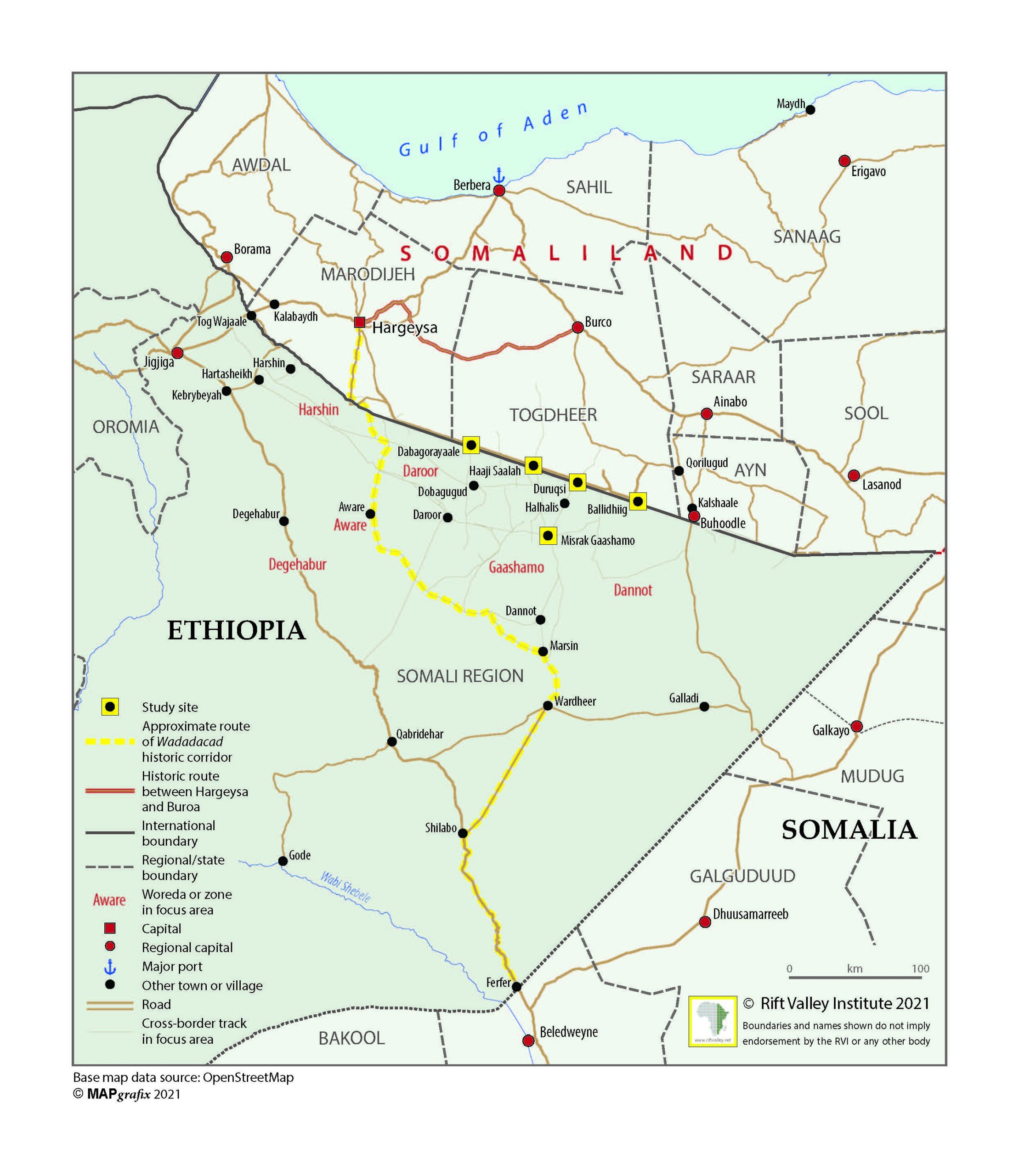
- By Mustafe M. Abdi
- Download
The current conflict over the contested city of Lasanod has the potential to expand into a crisis affecting several of the Somali-speaking territories. This blog – building on research the author conducted in 2021 – looks at the conflict…
Summary • Historically, the people living along the Blue Nile – Benishangul-Gumuz borderlands in what is now Sudan and Ethiopia have been politically and socially marginalized within their respective political entities. As such they have sought ways to address…
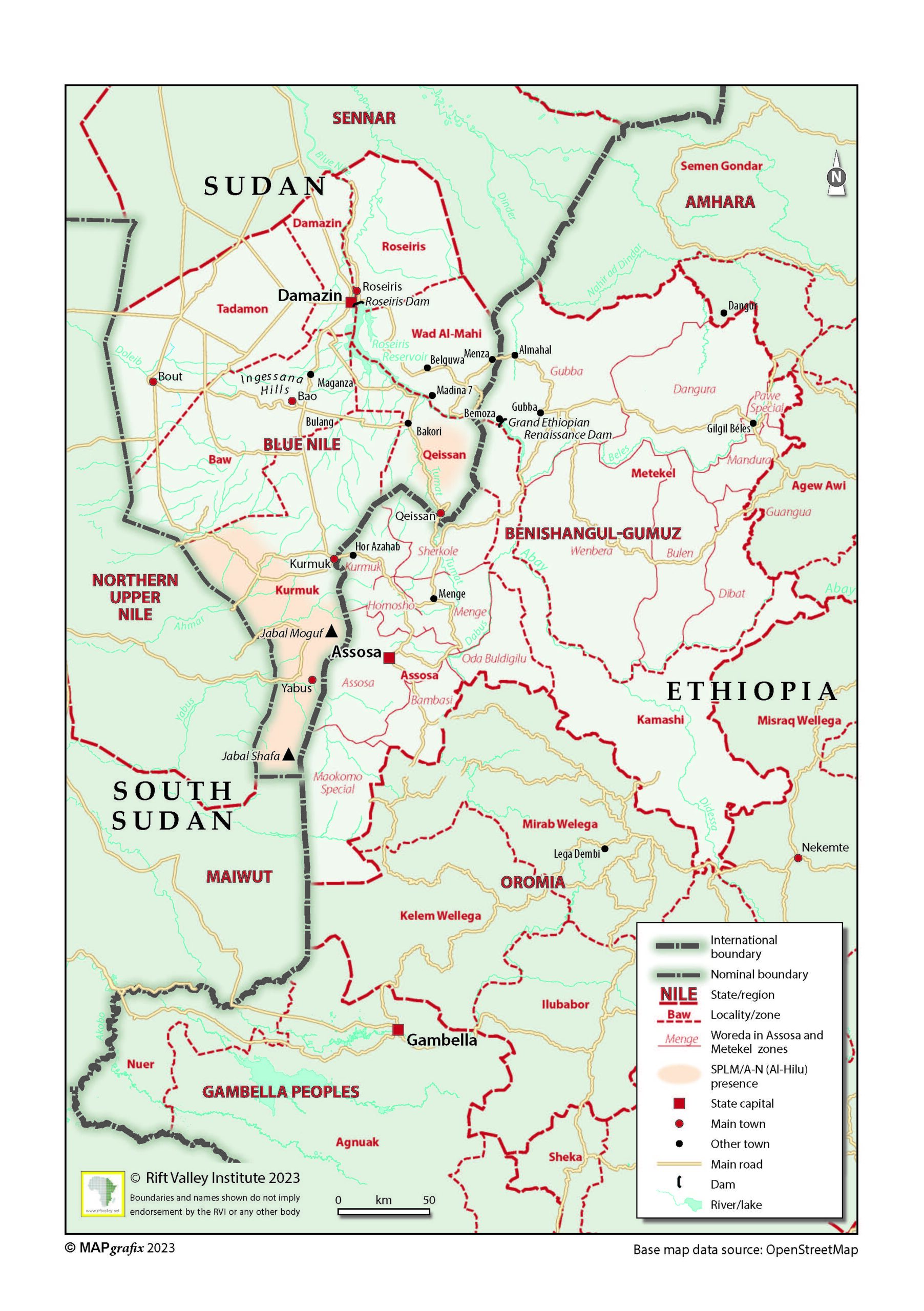
- Download
Armed opposition groups in Sudan and Ethiopia’s border regions have a history of leveraging support, often military, from their neighbours to aid their political aspirations at home. These dynamics have fluctuated in line with broader changes in the region…

- By Abdirahman Edle
- Download
The site of recurrent famines and humanitarian crises, Somalia’s Bay and Bakool regions were once considered the country’s breadbasket. In this blog, researcher and former development worker Abdirahman Edle explains how, over the past two decades, the region has…
In Sudan, the revolutionary upsurge of 2018/2019 signalled the implosion of the country’s postcolonial political order. The political parties of old have seen their social bases wither away and their ideological hold over the Sudanese people corrode under the…
Recent Publications

Political Economy of Cash and Markets in Sudan
February 27, 2026
The research provides a snapshot of the war in Sudan in the period from February to April 2025. However, the war is dynamic, with political alliances and territorial control changing. The April 2023 conflict between the Sudan Armed Forces (SAF)

Rethinking Ethiopia II: Youth and politics
February 26, 2026
Seminar report Rethinking Ethiopia, a collaborative essay competition initiative between Addis Ababa University’s Institute for Peace and Security Studies (IPSS) and the Rift Valley Institute’s (RVI) Peace Research Facility (PRF), offers a platform for Ethiopian youth to express their ideas

2025 Year in Review
February 16, 2026
The 2025 Year in Review provides an overview of the Rift Valley Institute’s work over the past year across eastern and central Africa. The report highlights RVI’s research and publication outputs, education and training activities, and public forums and convenings,
